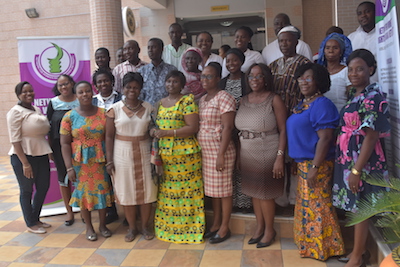
PThe second phase of a three-year project aimed at protecting rural women in farming has ended successfully with a call on authorities to address problems that hamper gender equality in land governance.
The programme, which began in July 2017 is an initiative of Network for Women’s Rights in Ghana (NETRIGHT) and has contributed to evidence based advocacy for gender and social inclusion reforms in the land sector.
Speaking at a day’s workshop to discuss the overview of the project, Madam Cynthia Sunu, project coordinator of NETRIGHT, said it was very important for the needed attention to be given to women in farming, since women comprise more than 50 per cent of the agricultural labour force in Ghana.
She said there was the need for members of community organisations, especially commercial farming associations to play major roles in ensuring that lands are leased in a manner that ensures free and informed consent of both males and females in a family.
Female farmers, she stated, must also muster the courage to engage their community leaders in their land acquisition processes and other activities related to farming to protect their interest since farming is their only means of livelihood.
“After our engagements with some of these rural women we have realised that most of them are now able to insist on documentation before starting cultivation on any land leased to them. NETRIGHT is happy about this, and will continue to create awareness about the importance of documentation when it comes to land acquisition for farming,” she said.
In her presentation, Madam Fati Alhassan noted that empowering women improves inclusion as they demand and claim their spaces, adding that tenancy agreement would also ensure security of tenure among women farmers and increase incomes and food security.
She explained that the media was no doubt a great tool in advancing inclusion in land governance.
Touching on some challenges of women farmers, she said inadequate refresher programmes, commercialisation of land and record keeping in some communities are still inadequate despite some improvement in the past.
“NETRIGHT will continue to fight for the rights of women,” she stressed.
NETRIGHT is a network of civil society organisations and individuals who have a clear interest in working together to advocate for policy change to strengthen women’s rights.
BY RAISSA SAMBOU






